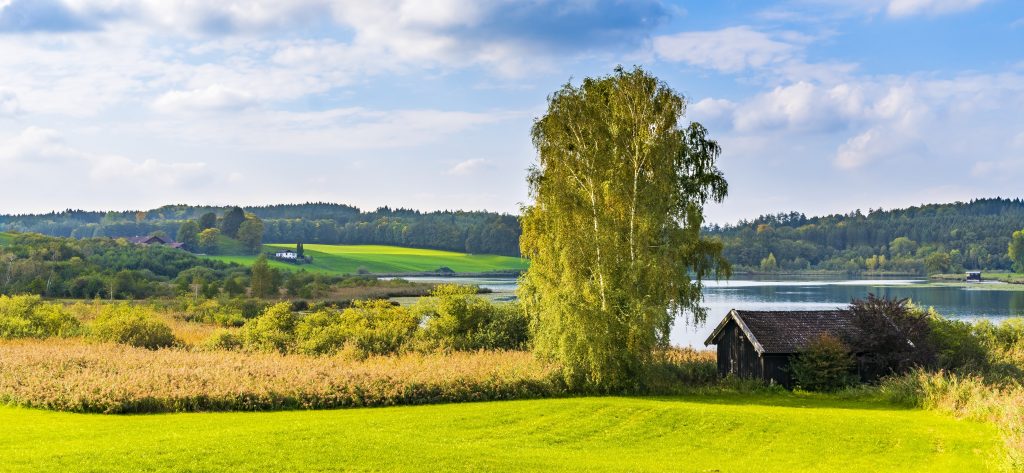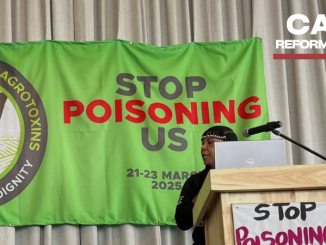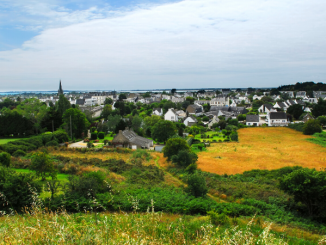
The Nature Restoration Law is in a perilous place at present. Having been rejected by two relevant Committees in the European Parliament outright, all eyes are on the Committee leading on the file – the Environment Committee, or ENVI. Oliver Moore with a brief explainer of the current state of affairs.
Current Overall State of Play
The Nature Restoration Law (NRL) is under severe strain, with a key vote coming up on 15th June in the Environment Committee in the European Parliament. If it does not survive this vote, it is very unlikely that the NRL will even make it to a full vote of all the Parliament’s MEPs – the plenary vote.
And after this, should it be passed at plenary, there’s a process involving both the Parliament and the Council of Ministers negotiating towards a final Law.
Indications from national ministers and prime ministers vary – Belgium and France have seen government heads call for a delay, whereas in Ireland there have been mixed signals – first for pause, later for progress. The Council of Ministers adopts a position at its meeting in Luxembourg on 20th June.
There is then an inter-institutional process throughout the remainder of 2023, between co-legislators the Parliament and Council, before the Nature Restoration Law would potentially come into force in 2024.
Current State of Play in the European Parliament
Within the Parliament, votes in the Agricultural and Rural (AGRI) and Marine (PECH) Committees have seen unexpected proposals to outright reject the NRL passed.
In the case of AGRI, a huge number of amendments to radically reduce the scale and impact of the NRL were already negotiated and then tabled by political groups. In particular an alliance between the centre-right EPP and the further right ID (Identity and Democracy) and ECR (European Conservatives and Reformists) groups, joined occasionally by the centre-left S&D (Socialists and Democrats) and liberal RE (Renew), saw the Left and Green groups largely isolated in a huge number of environmentally regressive amendments. See all AGRI amendments in our previous article.
Agri MEPs Vote to Reject the Nature Restoration Law – what’s next?
And yet even these compromises were not enough. By a large margin – 30 to 16 – the AGRI Committee voted to completely reject the NRL. Soon after, PECH voted by a much smaller margin – 15 to 13 – to also reject outright the NRL. (see how all MEPs voted in the twitter thread below)
You are currently viewing a placeholder content from Default. To access the actual content, click the button below. Please note that doing so will share data with third-party providers.
Now the Environment Committee (ENVI) must vote, likely 15th June. As ENVI is the lead on the whole file, if ENVI cannot agree at least to pass the NRL – with or without amendments – it is very unlikely any progress can be made. It will almost certainly not progress to Plenary.
While it will ostensibly go back to the Commission for re-writing, in reality this means the Nature restoration Law will fail to be progressed within the current institutional timeframe, which ends in 2024.
How is ENVI likely to Vote?
At least 45 MEPs from ENVI – there are 88 full members – are needed to retain the NRL – in other words, this many must vote against any proposal to scrap it. Here are all the MEPs in ENVI.
The groupings are expected or likely to vote in ENVI as follows:
Very likely to reject NRL
EPP – 22 MEPs; ECR – 8 MEPs; ID – 8 MEPs
Very likely to support NRL
Green – 10 MEPs; The Left – 6 MEPs
Likely to support NRL
Most or all of S&D – 18 MEPs
Mixed/undecided
Non-aligned MEPs – 4; RE – 12 MEPs
Both S&D and RE have voted more or less as a bloc in the two previous Committee votes. S&D voted in AGRI to retain NRL (so voting with the Greens and Left), while RE, surprisingly to many insiders, voted en masse to reject NRL. In PECH, one RE voted to retain while one voted to reject. S&D again voted with the Greens and the Left to retain.
Indications are that significant behind-the-scenes work is being done to retain the votes of S&D MEPs for the NRL.
Presuming S&D MEPs maintain their current voting patterns, the votes of 12 Renew (RE) and three non-aligned will decide whether the NRL can even get past its own proposing Committee and progress towards Plenary.
The pressure then, is on the non-aligned and the RE MEPs in particular. Typically there is what is seen as a working green-left-liberal majority in ENVI. But with the NRL, this is not certain anymore.
MEPs such as former Agriculture Commissioner Dacian Ciolos – a substitute on the ENVI committee and proposer of a very environmentally progressive CAP over a decade ago – will be instrumental in his Renew group in the days ahead.
All Renew MEPs on the ENVI Committee can be found here
More
Nature Restoration Law | Agri Committee’s Amendments Revealed – Reduced Targets, Increase Exemptions
EPP Attacks Pesticide Regulation & the Nature Restoration Law
Nature Restoration Law: A Chance for the EU to Make Good on the Green Deal





